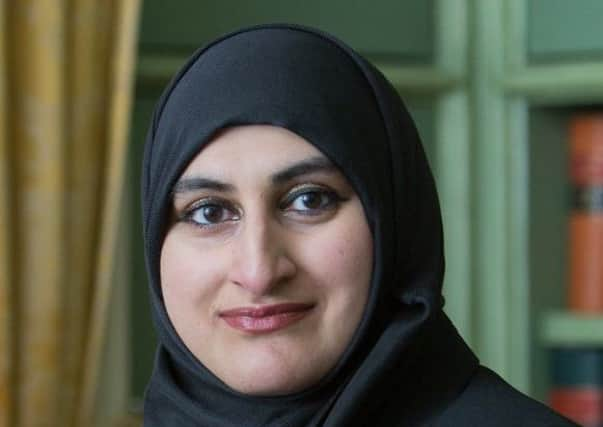How a placement in Palestine opened my eyes: Safeena Rashid


We were in the West Bank, volunteering for three months as part of a fellowship programme run by the International Legal Foundation (ILF), an NGO with offices in five countries, aiming to establish good quality public criminal defence services for indigent populations in post-conflict and transitional areas.
Regrettably, both my colleague’s and my answers were largely similar, centring around the terms “warzone” and “little old-fashioned village”. I suspect this is largely because before entering the country, my impression of Palestine had been peppered by tales of conflict and terrorism and the stereotypical notions that these carry.
Advertisement
Hide AdAdvertisement
Hide AdRefreshingly, it didn’t take long for my stereotypical views of Palestine to be completely shattered. Upon entering the West Bank, the buildings I saw, the roads I travelled on and the people I communicated with were not what I would typically associate with a warzone or little old fashioned village. Rather, they were indicative of articulate and educated individuals trying to make the most of their lives in difficult circumstances.
While out there, I had a social and a working purpose. Socially, I wanted to discover the real Palestine without barriers so, as a lone female, I travelled all over the West Bank and never felt unsafe. As soon as locals realised I was a foreign visitor, they were incredibly helpful and provided me with unparalleled hospitality, which often included free food and travel. I wondered if this is because they are acutely aware of how Palestinians are commonly portrayed or if it is simply because they are genuinely lovely people. After three months of much the same hospitality, I came to the conclusion that the latter applies.
Workwise, I am very aware that as a Scottish Advocate, I have had access to the best of education and training and I try to share this with others where possible. In order to assist the ILF West Bank lawyers, I had to attempt to understand the legal and practical framework within which they work.
The legal system is complex. There are influences from Palestinian, Jordanian, Israeli military and English law. I see many parallels between their system and ours. We, too, work within a web of legislation from various sources. Our cases also typically tend to originate from human interactions gone wrong.
I spent time helping local lawyers refine their practice surrounding juvenile representation, which accounts for around half of the caseload. Many cases were impulse borne, such as vandalism to mark unhappiness with change in family circumstances. Like us, the lawyers try to be creative with how they deal with juveniles to divert them from long-term involvement with the criminal justice system. Their passion and dedication are reflected in their training focus, with an emphasis not only on law but other sciences such as child psychology in order to be able to present appropriate mitigation to the Palestinian courts. Psychology-based arguments are still in their infancy and are yet to be wholeheartedly embraced by courts, but ILF West Bank’s value lies in its drive for innovation in legal practice.
The more time I spent in Palestine, the more I appreciated practising law in Scotland for varying reasons. For example, I am usually able to predict what time I need to leave the house in order to make it to court in good time, even if that court is in a different city. Lawyers in Palestine do not have that luxury. If they are travelling from one city to another, they do not know whether it will take them one hour or three to make the journey, as the very nature of Palestine’s situation means the travelling lawyer has no control over when their freedom of movement will be restricted. Having to navigate my way through checkpoints was perhaps the most frustrating aspect of my visit to Palestine. I realised that while checkpoints frustrated me as a visitor, the Palestinians accepted them as part of life.
The lawyers I was working with were incredibly inspirational. I hoped that through the training I was delivering, I was not subconsciously pushing my western ideals on to them. Much the opposite - what I found was a group of lawyers with varying levels of experience, willing and eager to learn in order that they could promote best practice in their criminal justice system.
Safeena Rashid is a member of the Faculty of Advocates